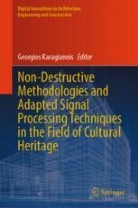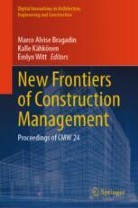BIM Geometry with Julia Plasm—Functional Language for CAD Programming
Volume 1: Mathematics and Software Engineering

Volume 1: Mathematics and Software Engineering
Available Renditions

Approaches and Methods for Data Acquisition, Analysis, and Intervention
Available Renditions

Available Renditions

Performance-Driven Design Approaches for Climate Change Adaptation
Available Renditions

Proceedings of CMW 24
Available Renditions
